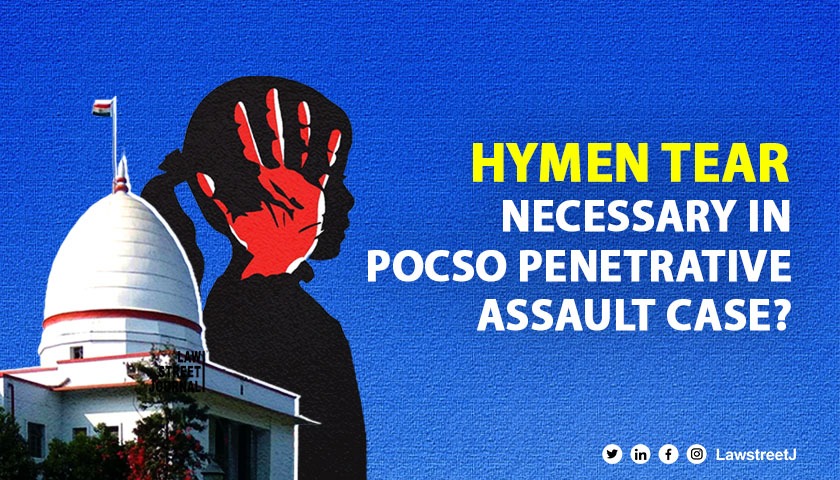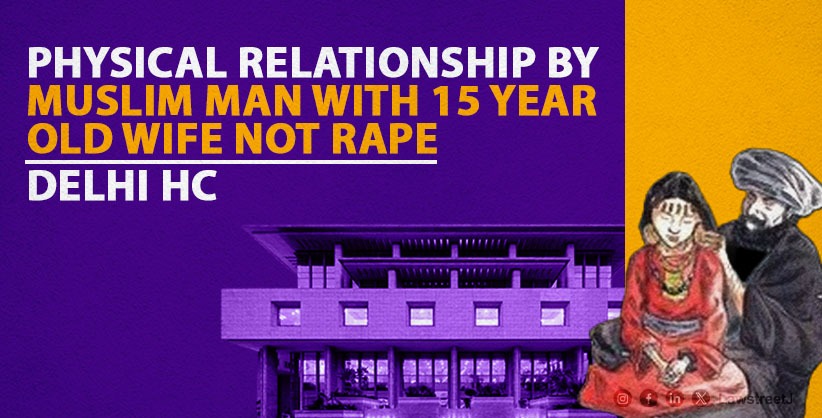GUWAHATI: Hymen tear or genital injuries are not a sine qua non to prove penetrative sexual assault, the Guwahati High Court has held in a case under the Protection of Children from Sexual Offences Act, 2012 (POCSO Act).
The Court held that even a superficial insertion which may not necessarily cause injuries or bruises to the victims body is covered under the Act.
The Court said in this regard, To bring home the charge of penetrative sexual assault, full penetration of the penis or full insertion of any object or part of body into the vagina is not required; even part penetration/insertion, which may not necessarily cause injury or bruises to the genitals, is sufficient for the purpose of the law in a case where there was superficial digital insertion, a medical examination would not necessarily detect any sign of physical injuries in the genital area of the child. Additionally, superficial digital insertion may not cause tear of the hymen. In view of the above, charge of penetrative sexual assault is made out the moment there is some degree of insertion. Therefore, non-tear of the hymen is of no consequence.
Dealing with a case where a man in whose house a 13-year-old victim was staying was accused of committing digital rape upon her, a single judge bench of Justice Kaushik Goswami thus held that the Trial Courts approach in acquitting the accused on the basis of a medical report that there were no genital injuries on the victim was manifestly erroneous.
The allegations on the man were that he had taken her out with him one evening and tried to rape her. He groped her before attempting rape, and when she resisted, he is alleged to have inserted his finger into her vagina.
The Court added that a 13-year-old girl would not ordinarily lie about being subjected to such sexual assault, and reiterated the settled legal principle that a child victims testimony can be the basis of conviction without further corroboration if it appears trustworthy, credible, is of sterling quality and inspires confidence.
Therefore, the version of the informant victim has to be considered with utmost care before discerning the same, the bench noted.
The child victim claimed that she had disclosed the incident to her grandmother, and the accused persons wife without any aid from either of them.
Her teacher found her crying at school the next day and alerted a district child protection officer, after which a criminal case was lodged.
While the FIR made out no allegations of digital rape, the child later disclosed this aspect in subsequent statements to the police and maintained the version during the trial.
However, the High Court reasoned that this was not unnatural considering the lack of support from her grandmother and the accused persons wife.
The Court also pointed out that the piecemeal narration of facts, or initial non-disclosure of digital rape could be because the child had to narrate the events before a male officer.
Her statements as regarding the surrounding circumstances have been fully supported by the other witnesses, the High Court added, concluding that the victims testimony inspired confidence.
Decision
On the above reasoning the High Court set aside the accused persons acquittal, however, did not proceed to convict him noting that the trial court had framed charges wrongly.
Instead of framing a charge for aggravated penetrative sexual assault (punishable with a minimum sentence of 20 years in jail) under Section 5 (n) (sexual assault by a relative or a person living in the same shared household) of the POCSO Act, the trial court had cited a charge of penetrative sexual assault under Section 4 (which is punishable with a minimum sentence of 10 years in jail).
Therefore, the High Court remanded the matter back to the trial court, directing the accused to appear before it on April 22.
The trial was ordered to be concluded within 3 months thereafter.
Additional Public Prosecutor, Mizoram Linda L Fambawl represented the State government. Advocate B Lalramenga appeared for the accused.
Cause Title: State of Mizoram r/b The Secretary to the Government of Mizoram, Home Department, Aizawl, Mizoram v Lalramliana and Anr







![Supreme Court: No Lesser Sentence Under POCSO Act for Aggravated Sexual Assault on Children [Read Judgment]](/secure/uploads/2023/07/lj_8181_e1b61eb9-bc5f-492f-9dd8-8db728be7903.jpg)
![Supreme Court Directs States to Strengthen Support for Child Victims Under POCSO Act Implementation [Read Judgment]](/secure/uploads/2023/08/lj_2337_13336067-3347-4dec-9bb5-2ca3215fbafd.jpg)

![Law Commission Recommends Judicial Discretion for Age of Consent Under POCSO Act [Read Law Commission Report]](/secure/uploads/2023/09/lj_9734_4840497d-8532-493f-9599-f929c6a45bd4.jpg)






